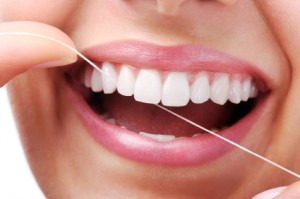The options for replacing missing teeth
The first thing to consider about replacing missing teeth is what are the implications of leaving a gap in your mouth?
When a tooth is lost either by surgery or by accident there is a space left in your jawbone where the tooth used to be. This space, or socket, will naturally be filled as the bone surrounding it collapses into the gap.
As the bone collapses into this socket/gap volume of bone is lost, and as the volume of bone is lost so is the gum which covers it. This results in a reduction in the amount of soft tissue surrounding your adjacent teeth, which can have quite dramatic affects on how your overall smile looks.
Some people report on seeing black triangles between their teeth appear as they lose this gum.
Your teeth are also in a fine balance with one another, if you lose a tooth, then the teeth either side of it may have a tendency to drift into the gap. Teeth opposing the one that is lost will also have an inclination to drift into the space.
This tipping and drifting can result in problems with your bite and could make filling the gap in years to come difficult or sometimes even impossible.
When it comes to dealing with missing teeth, we normally have four options:
- Do nothing and leave the gap.
- A dental bridge.
- A removable denture.
- A dental implant.
Let’s look at each of these options in turn.
What happens if you leave a gap and don’t replace the tooth.
As we mentioned above the bone will change around where you have lost a tooth which could make restoring your smile more difficult in the future, however, in many instances, leaving a tooth is a perfectly viable option, so long as you know the risks and what is likely to happen later on in life.
Many people live many years very happily with teeth missing, so long as they understand that they could be a compromise in the long term to their bite along with the obvious cosmetic disadvantages of having missing teeth.
Replacing missing teeth with a dental bridge.
A dental bridge is made by gently reducing the teeth either side of the gap to accept a new Crown (or commonly called a ‘cap’). With a new crown on the teeth either side of the gap we can suspend a new tooth and join it to these two new crowns, creating a dental bridge made of three components all joined together – the new Crown on either side and the false tooth suspended in the middle.
Dental bridges have been made for many years and are an exceptionally reliable treatment option to replace missing teeth, their biggest drawback is the fact that potentially healthy teeth either side of the space has to be drilled down to accept the new supporting crowns or ‘caps’.
From a financial or cost point of view we also end up having to provide three new teeth, one for each side of space and the tooth to replace the missing one. This can have a cost implication which you may want to consider.
What about dentures to replace missing teeth?
Often these are the least preferred option for patients as they are removable and you need to be careful when you are eating. They are however an extremely good solution to the problem of missing teeth. Dentures tend to be the most cost-effective option and with modern alternatives can be made to look exceptionally good, most people would never know that you are wearing dentures!
On the subject of dentures to replace missing teeth we recommend that when you clean them you always do this over a sink half filled with water. One of the most common causes of broken dentures is when people drop them into the sink whilst cleaning, if you half fill the sink then this is less likely to happen.
When you have dentures made it is important to opt for a quality dental practice. One of the common causes of problems with dentures is where they do not fit quite as well as they should, they then slip and press on the gum. This results in what is known as ‘gum stripping’ and can result in a loss of the gum around the teeth.
As a patient it is very difficult to know whether this would happen to you, so we recommend you ask your dentist about how they can prevent this problem and support your denture to prevent it slipping.
Replacing missing teeth with dental implants.
Generally speaking these are often considered as one of the best alternatives to replace missing teeth. Here are a few reasons why:
- dental implants support your bone of the jaw and therefore help to reduce resorption Caused as the bone falls into the space where the tooth was taken out.
- Dental implants support the adjacent teeth and prevent tipping as well as the opposing teeth drifting down into the gap.
- Implants are the most conservative option as they do not require reduction of the adjacent teeth the way dental bridges do.
- Implants can also often be the most cost effective treatment for missing teeth because you only need to replace one tooth, unlike a dental bridge with three teeth that are required.
- Implants can often last longer than dental bridges or dentures.
How many dental implants will I need?
There are no hard and fast rules about the number of implants that are required, however . Here is a general guide.
One tooth missing.
Replacing one tooth will normally only require one implant.
Replacing two teeth.
This will usually require the placement of two implants although in some situations only one implant is required.
Replacing between three and four teeth.
As odd as it may seem, you may only need to have two implants to replace three or four teeth, this is because an implant can be placed at either end of the space and the gap can be bridged and supported on the implants at either end.
Five teeth or more.
This is where it gets very complicated and it’s not possible to give any further advice on a blog post. There are techniques for replacing a full jaw of teeth on only for dental implants, this is an advanced procedure and is not always available for clinical reasons, depending on what your own unique situation is.
Is it safe to have dental implants abroad?
Because implants are a complex procedure, albeit a routine one, we recommend that you visit a dentist that you are able to see often. The dental implant procedure will involve several appointments during the planning phase.
Once your dental implants are placed you will also be required to visit the dentist up to 4 additional times. If this is a broad this could become a rather expensive treatment if you have to pay for air fairs and hotels.
The other thing to consider with going abroad is emergencies. What happens if you have something go wrong or break with your dental implant?
Seeing a dentist in the UK, particularly a local one, like our Watford dental implant practice is the best way to ensure that you have good quality care by dental professionals who are on hand to help you in the event of an emergency.

 February is National Heart month, which is supported by the British Heart Foundation. We at New Road Dental thought that this would be a good opportunity to let you know about the links between oral health and heart disease.
February is National Heart month, which is supported by the British Heart Foundation. We at New Road Dental thought that this would be a good opportunity to let you know about the links between oral health and heart disease. From your New Road Dental team, we would like to wish all our patients and friends a very happy and healthy 2014.
From your New Road Dental team, we would like to wish all our patients and friends a very happy and healthy 2014. Friday 27th September 2013 is Macmillan’s Cancer Support ‘World’s Biggest Coffee morning’. This is their biggest fundraising event and we at New Road Dental are very excited to be holding a coffee morning where donations on the day are made to Macmillan. This is such a wonderful cause which is very close to a lot of people’s hearts. In 2012 115,000 people signed up to coffee morning, raising a record £15 million. This year we want to help raise even more money to help change the lives of people affected by cancer.
Friday 27th September 2013 is Macmillan’s Cancer Support ‘World’s Biggest Coffee morning’. This is their biggest fundraising event and we at New Road Dental are very excited to be holding a coffee morning where donations on the day are made to Macmillan. This is such a wonderful cause which is very close to a lot of people’s hearts. In 2012 115,000 people signed up to coffee morning, raising a record £15 million. This year we want to help raise even more money to help change the lives of people affected by cancer.